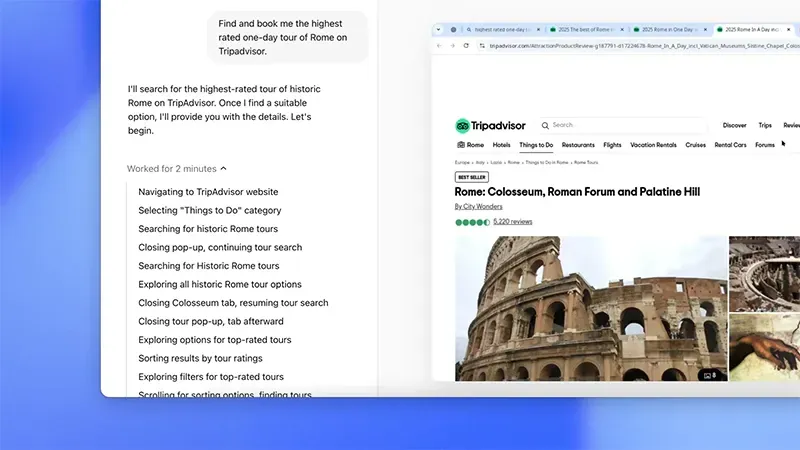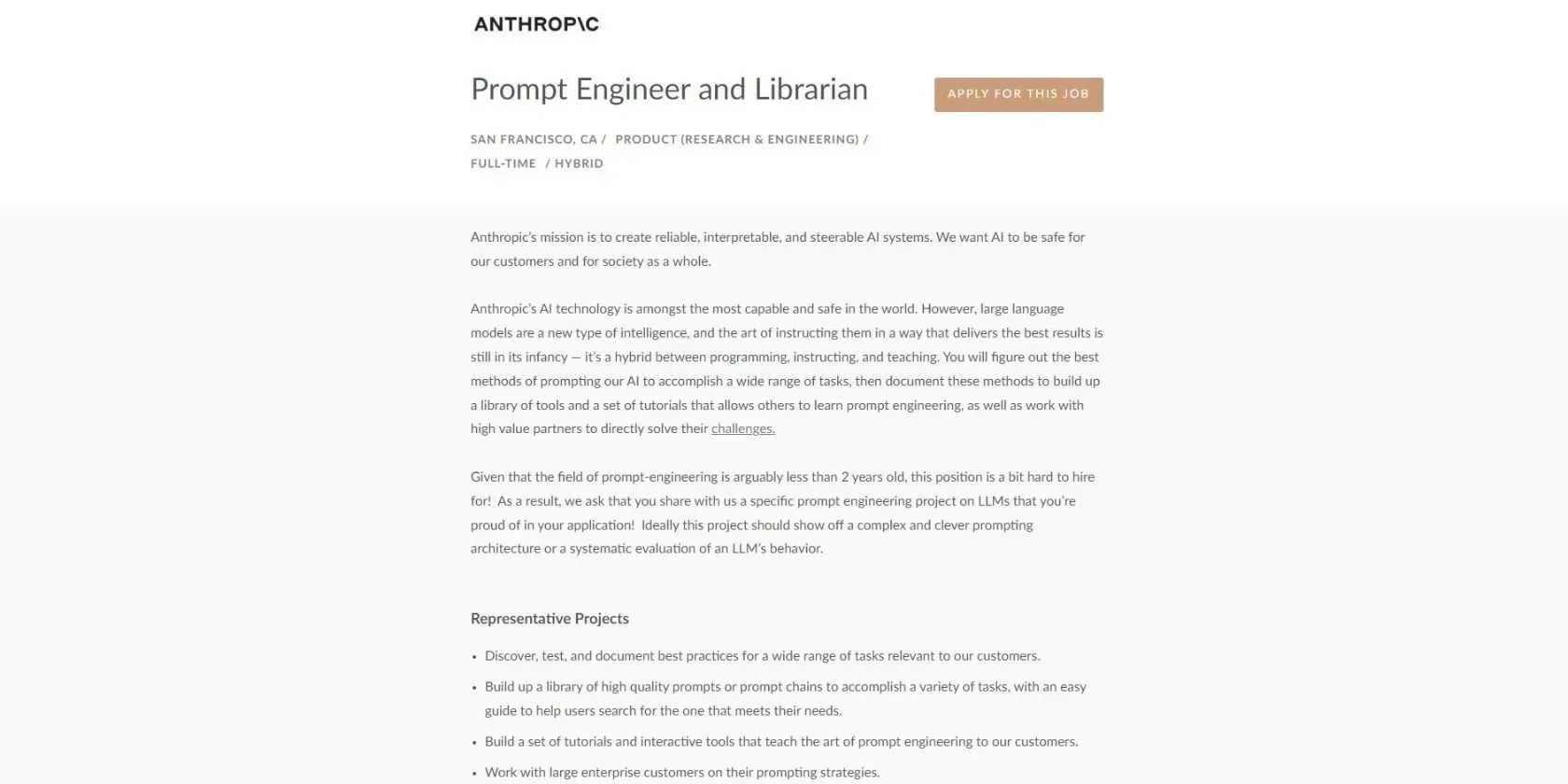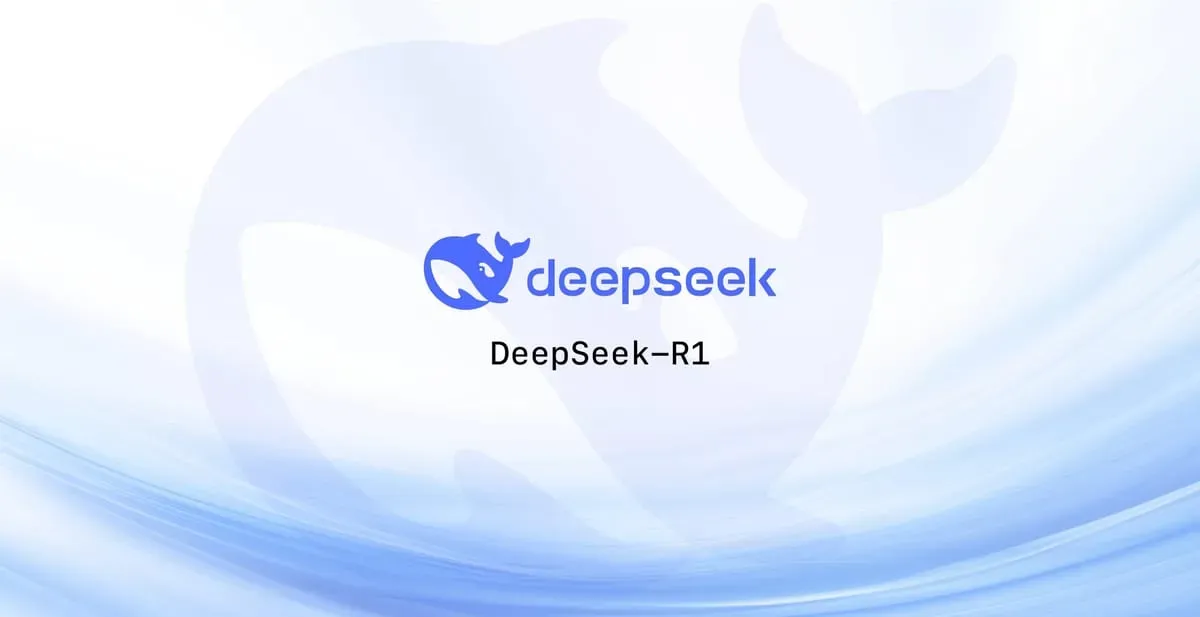OpenAI Operator is the latest innovation from OpenAI, designed to revolutionize AI web automation by utilizing its new Computer-Using Agent (CUA) model. This cutting-edge tool allows users to interact with web browsers in a human-like manner, performing tasks by analyzing on-screen elements and executing commands through simulated inputs. Available exclusively to subscribers of the ChatGPT Pro plan, OpenAI Operator promises to enhance productivity by automating repetitive online activities, making it an essential addition for those looking to streamline their workflows. As it integrates with OpenAI tools, users can expect a seamless experience that harnesses the power of AI browser automation. With chatGPT Pro features at its core, Operator is poised to set a new standard in the realm of intelligent web assistants.
Introducing the OpenAI Operator, a groundbreaking web automation system that leverages advanced AI capabilities to enhance user interactions with digital interfaces. This innovative tool, powered by the Computer-Using Agent, offers a unique approach to browser control, mimicking human behavior to accomplish tasks efficiently. As the landscape of AI-driven solutions expands, tools like Operator represent the forefront of AI advancements, enabling users to automate routine tasks without manual intervention. Through AI web automation, this system empowers individuals and businesses alike to optimize their online activities and achieve greater productivity. By embracing technologies that harness AI browser automation, users can now experience a more intuitive and effective way to navigate the digital world.
Understanding OpenAI’s Operator: A New Era of Web Automation
OpenAI’s Operator marks a significant advancement in the realm of web automation, leveraging the Computer-Using Agent (CUA) technology to empower users with a browser that mimics human-like interactions. By utilizing a visual interface, Operator can perform complex tasks such as filling out forms, clicking buttons, and navigating websites seamlessly. This innovative tool, available through the ChatGPT Pro subscription, is set to redefine how we approach online tasks, making them more efficient and less time-consuming.
The introduction of Operator is a clear indication of the growing trend towards agentic AI systems, which are designed to act on behalf of users. By utilizing advanced machine learning models, Operator can analyze on-screen elements and make decisions on the fly, enhancing the user experience significantly. As more tech companies, including Google and Anthropic, venture into this space, it becomes increasingly important to understand the capabilities and limitations of these intelligent agents.
The Technology Behind OpenAI’s Operator: Computer-Using Agent Explained
At the heart of OpenAI’s Operator lies the Computer-Using Agent (CUA), a sophisticated model that processes visual information to control browser functions. The CUA captures screenshots to monitor its progress, employing advanced machine learning techniques to interpret the visual data. By analyzing these images, CUA can decide on the necessary actions to take, whether it be clicking a link or entering text, thus allowing for a fluid interaction with web pages.
The integration of GPT-4o’s vision capabilities enhances the CUA’s performance, enabling it to recover from errors and navigate complex web environments. This iterative learning process is crucial for handling diverse applications, from shopping to navigation, showcasing the potential of AI browser automation in everyday tasks. However, despite its promising capabilities, the technology remains in the early stages of development, with ongoing feedback and testing essential for its improvement.
Advantages of Using Operator for AI Browser Automation
One of the primary benefits of using OpenAI’s Operator is its efficiency in handling repetitive tasks. Users can delegate mundane activities such as compiling shopping lists or organizing playlists to the CUA, freeing up valuable time for more complex tasks. This not only enhances productivity but also reduces the cognitive load associated with managing multiple online activities.
Moreover, the user-friendly interface of Operator allows individuals with minimal technical knowledge to take advantage of AI web automation. By simply interacting with the visual elements presented by Operator, users can automate a wide range of tasks without needing to understand the underlying technology. This democratization of AI tools aligns with OpenAI’s commitment to making advanced technologies accessible to everyone.
Challenges and Limitations of OpenAI’s Operator
Despite its innovative design, OpenAI’s Operator faces several challenges in its current form. For instance, while it excels at repetitive tasks, it struggles with more complex operations, particularly those involving unfamiliar interfaces such as calendars and text editing. As internal testing revealed, the success rate for intricate tasks remains low, highlighting the need for further refinement of the system.
Additionally, as with any new technology, there are inherent risks associated with using Operator. The potential for prompt injection attacks and other security vulnerabilities poses a significant concern for users. OpenAI has implemented various safety controls to mitigate these risks, but the evolving nature of cybersecurity threats necessitates continuous monitoring and updates to the system.
Privacy and Security Measures in OpenAI’s Operator
OpenAI takes user privacy seriously, implementing several measures to ensure the security of data processed by Operator. Users have the option to opt out of data collection for model training, and they can delete browsing data with a single click. Furthermore, the activation of ‘takeover mode’ during sensitive tasks prevents the collection of screenshots, safeguarding users’ personal information.
However, experts like AI researcher Simon Willison have raised concerns about the adequacy of these privacy measures. He advises users to start fresh sessions for each task to minimize the risk of credential retention. This proactive approach emphasizes the importance of user awareness in safeguarding personal data while using AI tools like Operator.
The Future of AI Automation: OpenAI’s Vision
Looking ahead, OpenAI envisions a future where AI automation becomes an integral part of daily online activities. By continually refining the capabilities of Operator, the company aims to enhance its reliability and effectiveness across a broader range of tasks. The integration of user feedback will be crucial in this development, ensuring that the tool evolves in line with user needs and expectations.
Additionally, OpenAI plans to expand the availability of Operator beyond the ChatGPT Pro plan, making it accessible to Plus, Team, and Enterprise users. This strategic move reflects the growing demand for automated solutions in various sectors, positioning OpenAI at the forefront of AI browser automation technology.
Comparative Analysis: Operator vs. Other AI Automation Tools
In the landscape of AI web automation, OpenAI’s Operator is not alone. Competing tools like Google’s Project Mariner and Anthropic’s Computer Use demonstrate similar functionalities, each with its unique approach to browser automation. While Operator utilizes a visual interface and the Computer-Using Agent, Project Mariner focuses on integrating automation directly within the Chrome browser, highlighting different methodologies in achieving similar goals.
Understanding these differences is essential for users looking to choose the right tool for their needs. Each platform offers distinct advantages and limitations, and users must consider factors such as task complexity, user interface, and integration capabilities when selecting an AI automation solution. As the market evolves, it will be interesting to see how these tools compete and collaborate to enhance user experiences.
User Feedback: The Key to Enhancing Operator’s Capabilities
OpenAI recognizes that user feedback is vital for improving Operator’s performance and expanding its capabilities. As users engage with the tool, their insights will help identify areas for enhancement, allowing OpenAI to adjust its algorithms and functionalities accordingly. This collaborative approach not only fosters a sense of community but also ensures that the tool develops in ways that genuinely meet user needs.
Gathering and analyzing user feedback will also play a crucial role in addressing the current limitations of Operator. By understanding the specific challenges users face, OpenAI can prioritize updates and enhancements that enhance the system’s overall effectiveness, ultimately leading to a more robust and reliable AI automation tool.
Ethical Considerations in AI Browser Automation
As AI automation tools like OpenAI’s Operator become more prevalent, ethical considerations surrounding their use are increasingly important. Issues such as data privacy, security vulnerabilities, and the potential for misuse must be addressed to ensure that these technologies are implemented responsibly. OpenAI has taken steps to mitigate risks, but ongoing dialogue about ethical practices in AI development is crucial.
Furthermore, as AI systems become more autonomous, questions about accountability and transparency arise. Users must be informed about how their data is used and the decision-making processes of the AI tools they employ. OpenAI’s commitment to transparency in its documentation and user settings is a positive step, but the conversation around ethical AI will continue to evolve as technology advances.
Frequently Asked Questions
What is OpenAI’s Operator and how does it use AI web automation?
OpenAI’s Operator is a web automation tool that leverages a new AI model called the Computer-Using Agent (CUA) to perform tasks in a browser. It utilizes AI web automation to interact with on-screen elements like buttons and text fields, mimicking human behavior to complete various online tasks.
How does the Computer-Using Agent (CUA) enhance AI browser automation?
The Computer-Using Agent (CUA) enhances AI browser automation by analyzing screenshots of the browser interface in real-time. This allows it to understand the state of the webpage and make decisions about clicking, typing, and scrolling, thus executing tasks more efficiently and accurately.
What features are available in the ChatGPT Pro plan for using OpenAI Operator?
Subscribers of the $200-per-month ChatGPT Pro plan can access OpenAI Operator, which includes advanced AI browser automation capabilities. Users can leverage the tool to automate repetitive web tasks and interact with various online interfaces through a visual browser interface.
How does OpenAI ensure the safety and privacy of users while using Operator?
OpenAI has integrated multiple safety controls into Operator, requiring user confirmations for sensitive actions and restricting access to certain websites. Additionally, users can opt out of data collection, delete browsing history, and activate a ‘takeover mode’ for sensitive information input.
What type of tasks can OpenAI Operator perform effectively?
OpenAI Operator excels at repetitive web tasks such as creating shopping lists and playlists. Its AI web automation capabilities allow it to handle these tasks efficiently, although it may struggle with more complex operations involving unfamiliar interfaces.
Are there any limitations to the performance of OpenAI’s Operator?
Yes, while OpenAI’s Operator shows an 87% success rate on the WebVoyager benchmark, it has a lower success rate of 40% for complex text editing tasks. Additionally, its performance can vary based on the complexity of the web interface being used.
When will OpenAI’s Operator be available to more users beyond ChatGPT Pro subscribers?
OpenAI plans to expand access to Operator beyond ChatGPT Pro subscribers to Plus, Team, and Enterprise users in the future, allowing a broader audience to utilize its AI browser automation capabilities.
What measures does OpenAI have in place to prevent prompt injection attacks on Operator?
OpenAI has established real-time moderation and detection systems to identify prompt injection attempts while using Operator. Despite these measures, ongoing vigilance is necessary as new threats may arise in the future.
How can users protect their privacy while using OpenAI’s Operator?
Users can protect their privacy by opting out of data usage for model training, deleting browsing data, and using the ‘takeover mode’ when entering sensitive information. It’s also advisable to start a fresh session for each new task to enhance security.
What future developments can we expect from OpenAI regarding the Computer-Using Agent (CUA)?
OpenAI aims to integrate CUA capabilities directly into ChatGPT and plans to release it via an API for developers. This would expand the potential applications of AI web automation and enhance user experience.
| Key Features | Details |
|---|---|
| Operator Release Date | Thursday, October 2023 |
| AI Model Used | Computer-Using Agent (CUA) |
| Availability | Currently for ChatGPT Pro subscribers at $200/month, with plans for Plus, Team, and Enterprise users. |
| Functionality | Controls a web browser via a visual interface, mimicking human interactions. |
| Success Rates | 87% on WebVoyager, 58.1% on WebArena, 38.1% on OSWorld benchmark. |
| Safety Controls | Requires user confirmation for sensitive actions; browsing restrictions in place. |
| Privacy Features | Users can opt-out of data usage, delete browsing data easily, and activate a takeover mode for sensitive inputs. |
| Future Plans | OpenAI aims to expand capabilities based on user feedback and integrate CUA into ChatGPT and via API for developers. |
Summary
OpenAI Operator is a cutting-edge web automation tool that leverages the Computer-Using Agent (CUA) to perform tasks within a browser environment. As OpenAI continues to refine this technology, it aims to address user feedback and enhance system reliability while maintaining rigorous safety and privacy protocols.










